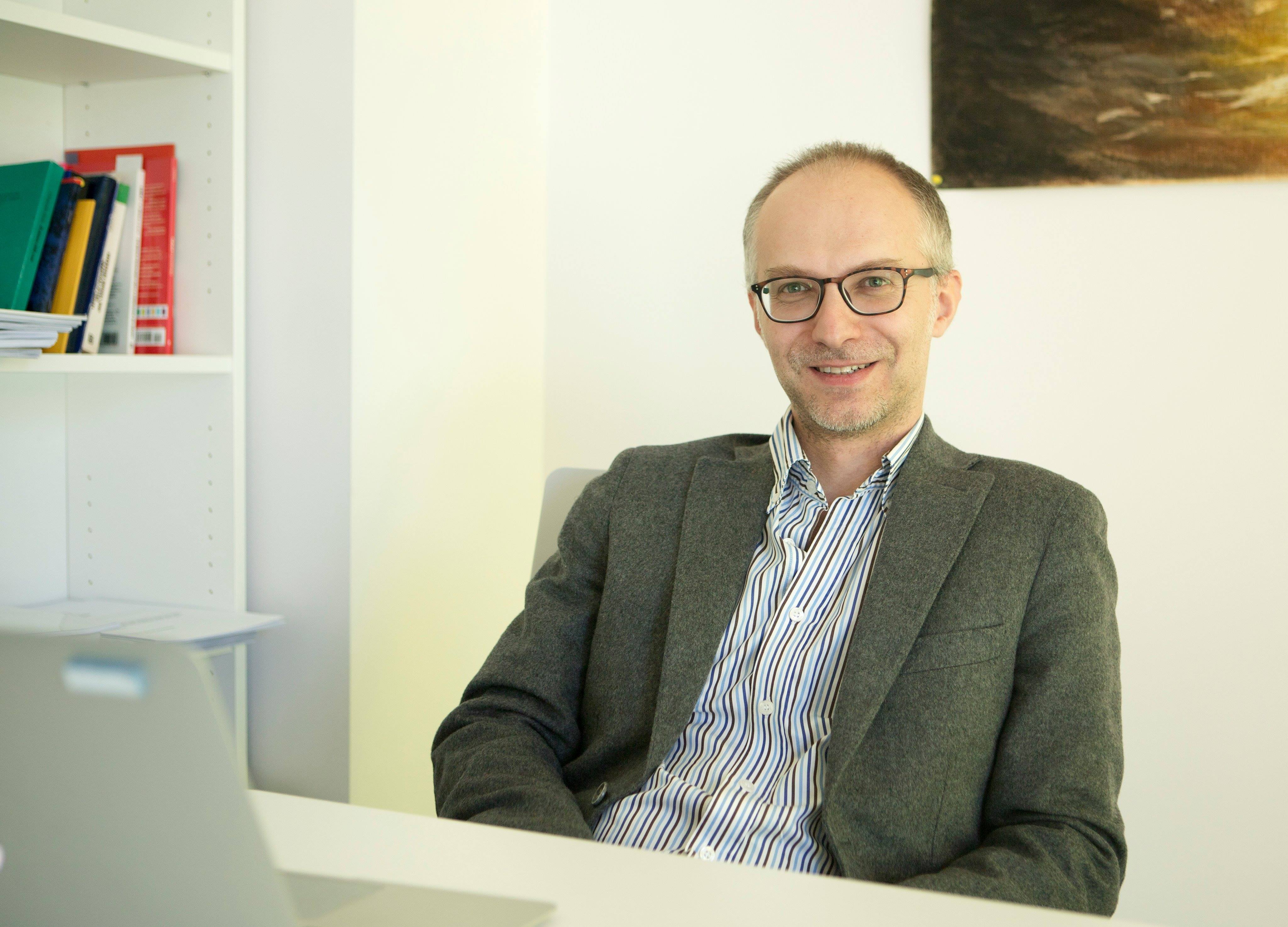Conversation with Gianmichele Laquale, psychologist working in Armenia
Gianmichele Laquale is a psychologist and psychotherapist. He works at the United World College of Dilijan. He loves Armenia and he enjoys exploring our country and meeting people.
In response to “Aravot’s” inquiry about the role of a psychologist at UWC Dilijan, which hosts students coming from different nationalities and cultures, Gianmichele Laquale highlights that the United World Colleges, which are an educational network of international schools, value not only the cognitive but also the emotional development and wellbeing of students.
Gianmichele says that education can unite students and people. He clarifies that adolescents face multifaceted demands and challenges, which may sometime bring about psychological and emotional difficulties. Emotional development, the process for which we learn to know and regulate our emotions, is not a linear process, but a rhizomatic and complex experience, which presents challenges. Therefore, the help and facilitation of a psychologist can be essential to support teenagers to process their experiences and learn from their difficulties. Furthermore, international students, living everyday with people coming from all over the world in a context different from the one they come from, may also face a “cultural shock” and to go through this dimension the role of a psychologist can be crucial.
According to our interviewee, a psychologist should not be seen only as a professional who helps people with emotional difficulties, but he/she is a practitioner who works also on prevention of distress and promotion of wellbeing. He/she can facilitate the process of emotional development.
The psychologist mentions that he himself is a former UWC student. He graduated from UWC Adriatic in Italy. He studied Psychology, he earned a PhD in Clinical Psychology and a Specialization in Group Analysis. Before coming to Armenia, he worked as a counsellor for students at the University of Bari, in Southern Italy, he was in private practice and he was also engaged in research activities collaborating with the Department of Psychology of the same University.
“One of my objectives and passions has always been to combine clinical practice and research,” says Gianmichele. Moreover, he adds that he always wanted to work in an international environment with people coming from different cultures.
“I started to look for job opportunities and found the offer to work in a UWC in Armenia. I knew very little about Armenia but this opportunity became somehow very fascinating for me. I knew that Armenia is a country with a rich history and culture. So I decided to join an international environment where I could work with students from different cultures in a country which is at the crossroad of civilizations” he says.
To our comment that it is not common in Armenia to see a psychologist or a psychotherapist, since relatives, friends and acquaintances may replace this “role”, he mentions that he believes that people have started to give importance to mental health also here. Moreover, he underlines that seeing a psychologist is not a trend or a cultural stereotype linked with particular cultural contexts. “In some cases the referral to a specialist is necessary. A psychologist does not have the role to change cultures, however the culture of seeing a psychologist can be an important input also in Armenia to help and support people”.
During our talk, we also spoke about social network use and addiction. The psychologist stresses that it is important to consider why and how people use social networks. On one hand, people can use social networks as a tool for being in touch with others, promoting values and human rights, but on the other hand, people can develop a severe addiction towards them.
“Sometime people prefer to communicate through social networks, rather than interacting and living relationships in real life,” says the specialist. He adds that, in this case, the problem does not depend on the social networks per se, but on the way people use them. People, who have emotional problems, can develop addictions to shopping, substances or several other things, and also to the use of social networks.
“Relationships can be painful, this is why some people prefer to communicate through social networks, as they feel more protected than they would in real life. People might unconsciously think that they can control their emotions online, but this is not the case,” adds the psychologist. The specialist stresses the importance of media and emotional literacy for children and young people. This would allow people to use social networks with higher self-awareness.
Talking about the role of an “educated” person in the society, the psychologist mentions that any society should not only invest on economic and technological growth. He believes that there should be also a proper attention and care for the mental health and emotional wellbeing of people. “Actually, mental health is important also for economic development. We know how large the impact of mental health issues is on economic growth. Furthermore, if we are educated enough, we should realize how little we know about ourselves… we should realize that rationality is an illusion and that we cannot approach life using only rationality… It is not by chance that we say that we are not the owners of our mind. On one hand, this may sound depressive but in reality this is an interesting and intriguing point – it implies that it is essential to listen to ourselves, to be in touch with our desires and our needs, to learn from experience. Life can give us more than we expect, if we go out of the boundaries of rationality… blending thoughts and emotions. Very often, we look for something and find something else, maybe a completely different thing. Only later we may realize that what we found is something valuable. Life becomes empty and sterile if we try to over-control it. It becomes much more colorful if we allow it to surprise us” says the psychologist.
























































